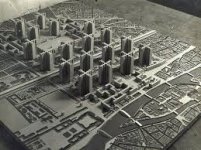VinnyVeritas
Libertarian Sage
- Joined
- Oct 11, 2022
- Posts
- 2,842
Robert Silverberg wrote a SciFi novel, the name of it escapes me, but the premise was that eventually, most of mankind came to live in very big, tall self-contained buildings and never strayed from them to venture into the wild because inside was hermetically sanitized and outside was a death sentence.
The part that most Litizens would enjoy is that doors were not locked, you could enter any domicile you wished and it was considered rude, if not criminal, to turn down sex. I thought I would just throw that in, but I could see something like that occurring after having witnessed the supercilious pandemic lockdowns.
The part that most Litizens would enjoy is that doors were not locked, you could enter any domicile you wished and it was considered rude, if not criminal, to turn down sex. I thought I would just throw that in, but I could see something like that occurring after having witnessed the supercilious pandemic lockdowns.
